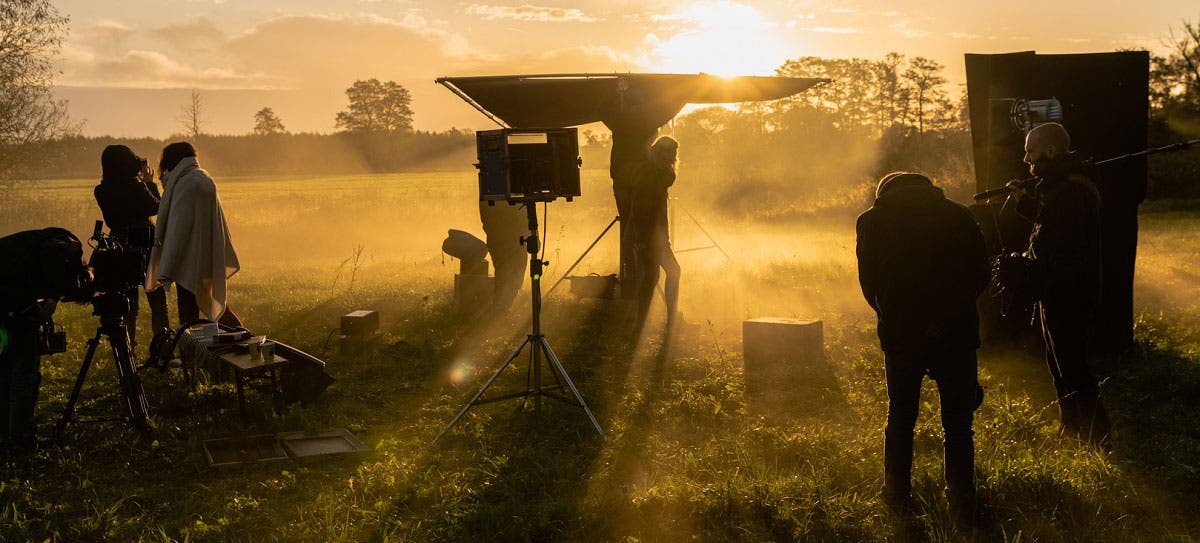A film set is a magical place. Well, that is what the people who pass them on the street think. As someone who has worked very long hours on set, I don’t want to say the magic disappears — it doesn’t — but it does wear very thin after the fourteenth hour of work, on the fourteenth day, of the umpteenth production of a boy-meets-girl, girl-likes-a-vampire, they-all-road-trip-to-Vegas idea. However, most people on set have a passion for their work and wouldn’t trade it for any other job, and I feel the same.
I am writing this post in the spirit of camaraderie, for the people who are interested in working on a film set and want to make their first days as trouble-free as possible. I know this post may paint a film set as a scary, stressful place — which it is — but it is also a place where you can make instant lifelong friends. There is a bond in going through difficult times together and that leads to many people finding out exactly who you are, for both good and ill, as you can’t hide your true self when you are dead tired.
Also, while many of these rules apply as law on big budget sets, they are a bit more flexible on smaller budget or no-budget sets. I kept the list to eight, but feel free to let me know what I may have missed!
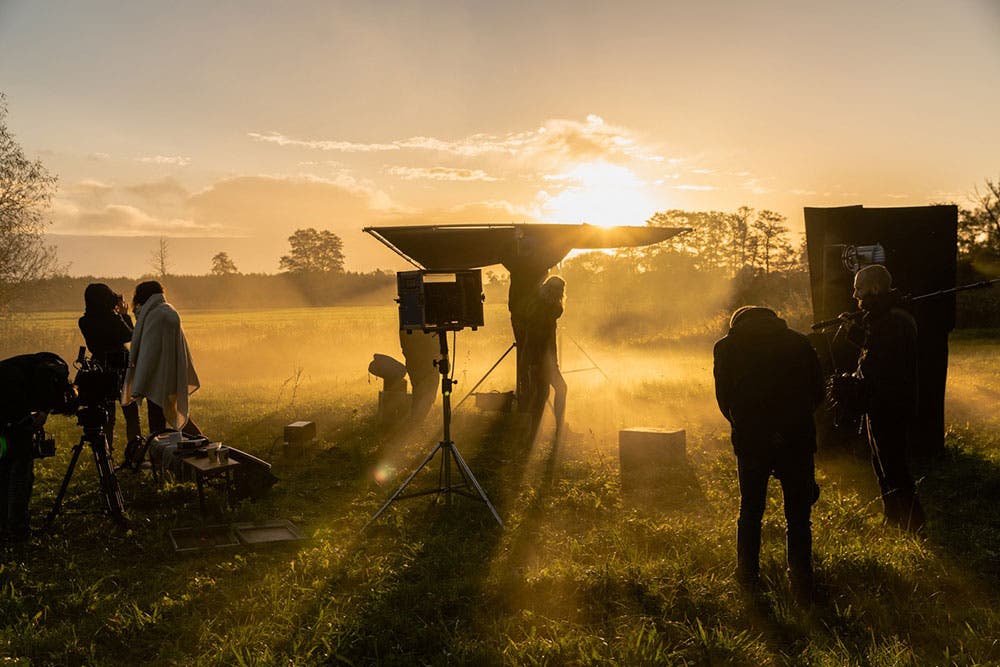
1. The golden rule: don’t be a jerk
Long hours, tough working conditions, and personality conflicts can lead to people getting agitated and becoming cranky, and while not ideal, it is understandable. It is the person who is on set, constantly barking orders, or for whom nothing is ever good enough or fast enough that people cannot stand working with. They take the mood of the set and crush it. It can be a director, a producer, a DoP or any higher position on set where they have some amount of power. I see this most often though on smaller productions rather than larger ones as the difference in experience levels of crew members can lead to slower scene set ups.
I also see brand new directors who try to jam two days of shooting into one and expect everyone to make it happen even though they need that sixth take. It can end with yelling, and no one likes working on a set like that.
If you are on-set and you act like this, you will find it very difficult to find people who want to work for or with you. So don’t be a jerk. Just do your job well and if people aren’t meeting your expectations, tell their department head, and if that is you, pull them aside and explain kindly what it is you need.
2. Don’t interrupt the director, especially when they are working with actors
You will often need an immediate answer to a question to be able to continue to do your job. Does the director want milk or sugar in his coffee? How many extras should be in this scene? We need to lose the helicopter scene, is that OK? All these questions need answers, but they may not always need to come from the director. Try asking the 1st Assistant Director (1st AD), who is in charge of the logistics of the film, most questions and you may get answers that makes asking the director unnecessary.
Sometimes, and especially on much smaller productions, there may not be a 1st AD, or you may be a first time 1st AD yourself and you are the one needing to know how to answer all these questions and the director is the only one to ask. Unless the question is one of extremely, extreme importance — such as, the police are asking for a permit and we don’t have one — don’t interrupt the director while he or she is speaking with the actors.
One of primary roles of the director is working with the actors to get the performances they want, and the relationship between director and actor is extremely important. It is delicate, often emotional, work that requires extreme concentration and a kind of bubble that needs to remain unbroken so that they can do the hard work of getting the performance to the right place. So, don’t be the one to pierce this bubble and incur the wrath of the director. Your options are to try to find someone else who may have your answer, wait until there is a break in the conversation between actor and director, or if it won’t be a disastrous idea, make the decision yourself.
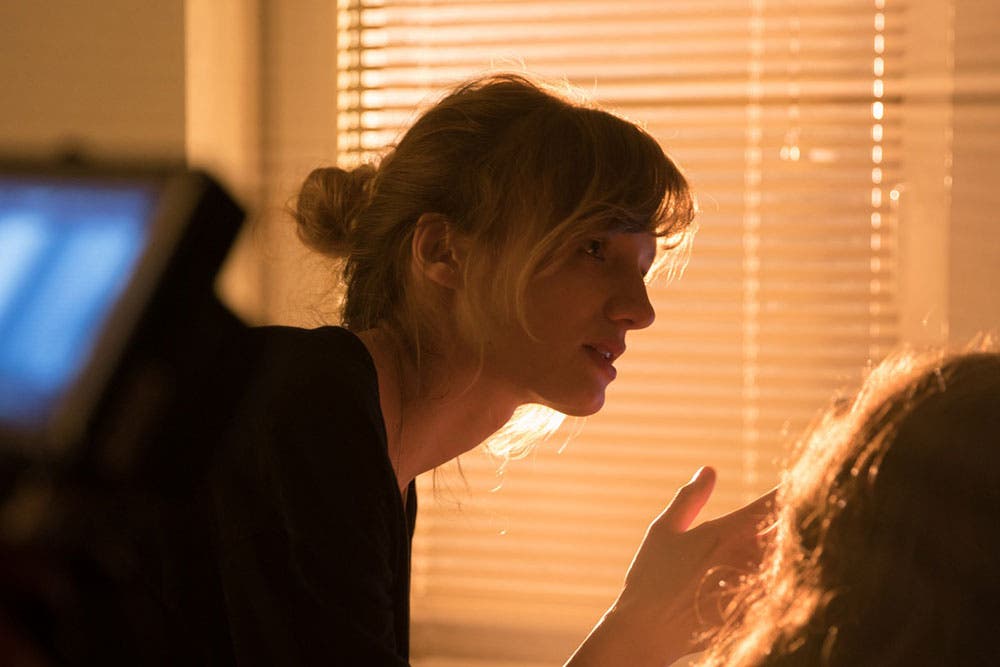
3. Share your opinions, but remember to be a team player
I will preface this by saying that if you are hired to do an artistic job, your taste is a large part of why you were hired and having opinions, even strong ones is warranted, and often wanted. However there are people who, when given a solid no from someone higher up on the chain of command, will not take that as the final word. When they repeatedly bring up the same issue, they are damaging their own reputation as someone who is not able to work on a team. The no was given with a reason, be it the time it would take, the budget, the director’s preference, whatever it is, so once you get a solid “no,” move on, and move forward with the team decision.
4. Don’t show up on time — show up early
This should be obvious, but in the film world, time is money, and lots of it. Everyone, I repeat, everyone is expected to show up a bit early. Even if you are on a no-budget set, make sure you get into the habit of showing up at least 15 minutes early to grab your coffee and be ready to roll at the call time.
This is not a regular job where you can make up the ten minutes you’re late at the end of the day. There is no mercy due to traffic, train delays, weather, or the coming of the apocalypse. There is only this financial (also creative) machine that needs to grind forward. All cylinders need to be firing together in harmony at the start time to make the film engine run smoothly. If one person shows up late, it can have a knock-on effect and slow everything down.
5. Never handle equipment from another department
You may feel like you are helping, but trust me, you are not. Equipment can be dangerous. Leave that light stand where it is, even if you think it is in the way or in a dangerous location, and unless you are in the grip or lighting department, you should never touch grip or lighting equipment. It is not only a bad idea because it will confuse and irritate them, but it is also potentially very dangerous. Before you touch or move, ask them if they can move it. This goes the same for people from any department moving equipment that belongs to any other department. Lighting should never touch Art Department property, Camera Department should never touch Sound Department equipment, and so forth.
As a bonus side note, there is almost always a craft table. If you see food that is not on that table, MAKE SURE it is not food that is meant to be used in a scene before even thinking about eating it. And when in doubt, never eat food that could be part of a scene.
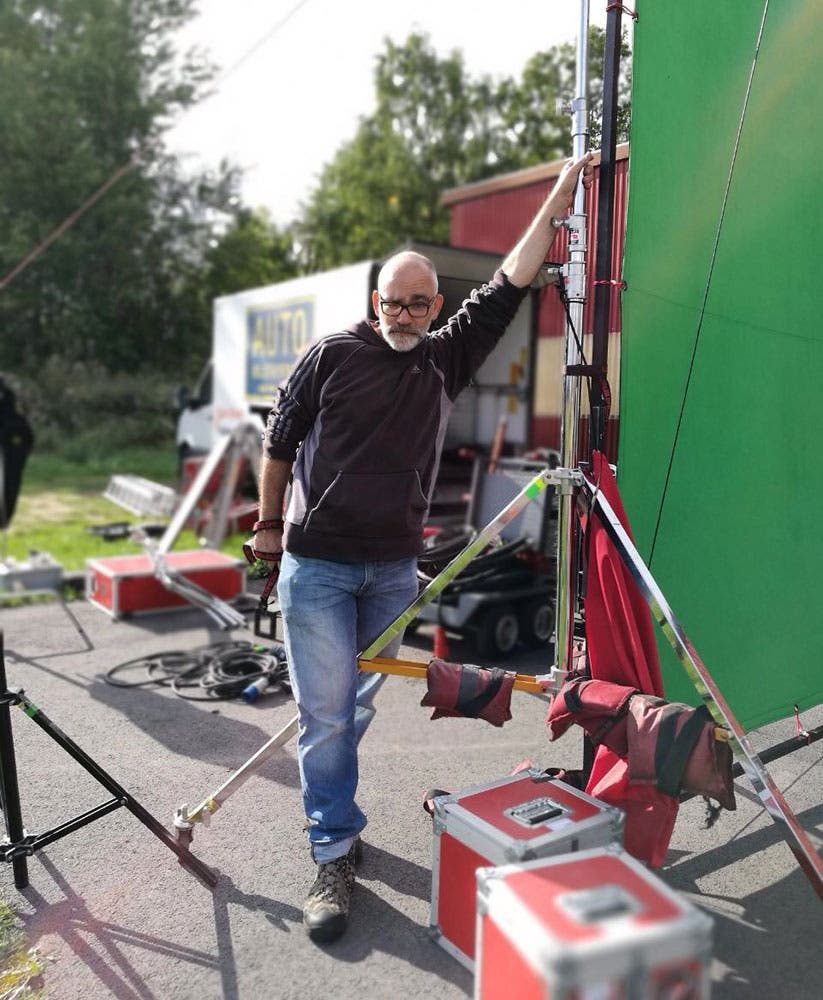
6. Always follow the chain of command
Film sets are rigorously hierarchical and people are expected to strictly follow the chain of command. For those who haven’t had experience of working on a set before, it’s military-style in the sense that you report to your superior, who in turn reports to their superior. If you have a suggestion or a complaint you direct it to your supervisor who can then decide to take it further using their judgement.
This basically means if you have an issue or comment about the scenery, let’s say the background could use a pop of color and you think that a brighter lampshade would make a world of difference. In this example, you are a Production Assistant (PA), so you would take that idea to the Key PA who would then, if they decided it was a positive idea, would take it to the 1st AD, who then could take it to the Art Department. Yes, that is a lot of steps for one comment to reach someone for the ultimate decision, but I think that is the purpose.
This is not a free-range, open-source, loosely-making-a-film-by-committee system. This is a structured system organized for maximum efficiency. You may disagree with it on principle, and there are many who do, seeing it as a commercialization of a creative endeavor, but the system does work to put out movies that are extremely complex in scope and budget. Also, if everyone went to the director and said, “Hey Ms. Director, I have an idea. What if you did the scene this way?” do you think that would be a productive system?
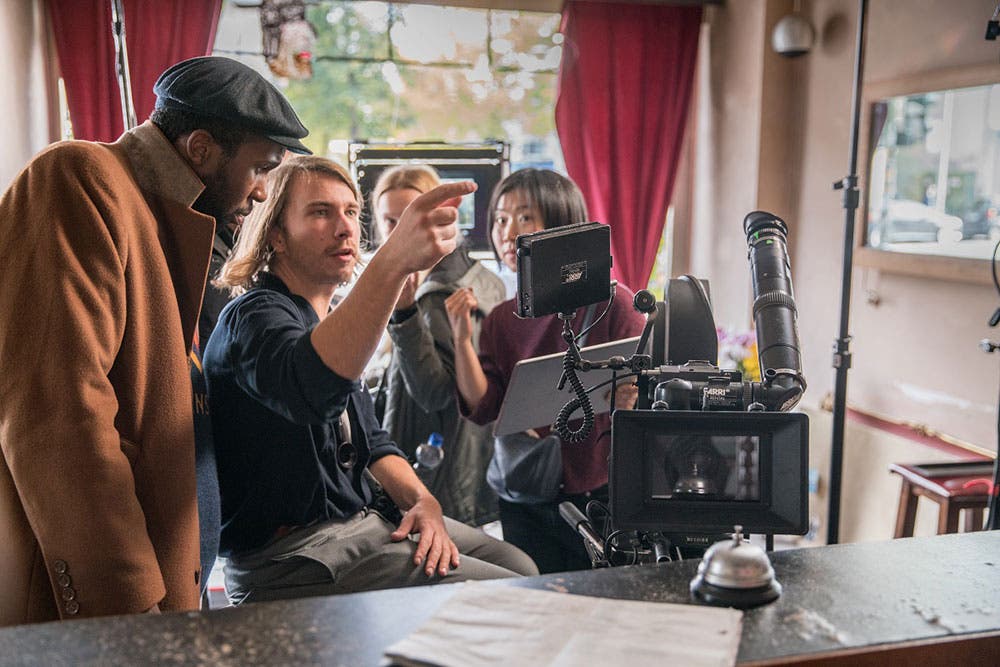
7. Don’t grumble
If it is your first time on set you are likely at a low-level position, possibly PA, where they will expect you to get coffee and run people around town. And you may be doing this for no money. That can be pretty hard to swallow, but let me give you a piece of advice. Swallow that pride, and don’t be the person who complains about being asked to help. Just don’t be that person. Be the can-do-attitude person. Film career longevity is built on force of will and relationships. Force of will to be able to survive the long hours, days, and months. The film relationships are built on being reliable, knowing your job in and out, being resourceful, and your attitude. I have been employed and employed many people over the years and hired several people only once. Always think, how I should act if I want to keep working? Everyone has eyes on everyone at all times. Be positive, be good at your job, and be reliable. That will get you noticed and keep you employed.
As an example, the image below is me and my assistant sitting atop a very shaky scaffolding for four-plus hours for a timelapse, so we had to suppress all desire to move and later to shudder from the cold as the scaffolding would shake with the smallest movement. It wasn’t fun, but it needed to get done. I won’t say there was zero grumbling, but we kept it to a bare minimum.
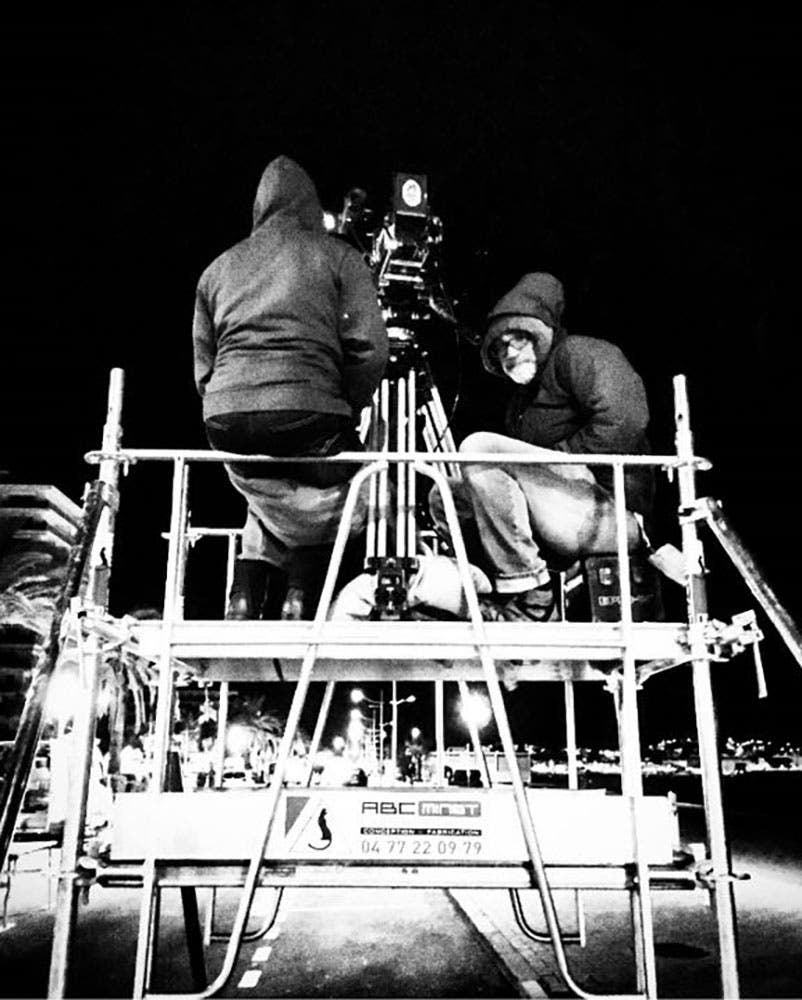
8. If you don’t know, ask someone who does
Ok, breathe deep. You’ve been asked to go grab the redhead. Don’t search the set for a man or woman with red hair. A redhead is an open-faced tungsten light up to 1000 watts. Many of them are set in red fixtures. Film uses tons of slang terms and many of them are regional. So even if you learn them in one part of the US they may be referred to as something else, somewhere else in the US and then again somewhere else, if you go international.
There will also be a large number of positions in the film industry that you will need to learn. What their role is and how they relate to each other: gaffer, best boy, continuity, DoP. But this will come pretty quickly and you mostly just need to know who your team is at the start.
There are also tons of film specific tools: c-stands, dollies, jibs, wall spreaders, different types of clamps, apple boxes (several different widths of the same wooden box used for sitting on as well as drilling things into), a pancake (that’s the smallest apple box). So if someone asks you to get a pancake, you know at least where to start. This leads me to my main point. We have all been in your shoes. The people who now have this vast knowledge had to acquire it somewhere, sometime. They didn’t download it Matrix style.
So when you are asked for something and have no idea what it is, ask them to describe it to you and hopefully you will then be able to find it. Depending on who you have as a department head, they may be friendly and happy to teach you exactly what the thing is. The other option, which I have seen happen many times, is that I ask for a specific thing, assuming the person knows what it is, and then I am waiting for it way longer than I expected. I am a benevolent DoP/Gaffer and if the person has proven themselves so far I will let them know they can tell me they don’t know what something is and I will take the minute to explain what it is and what it does, because I was in their shoes once, and was given the same lessons.
And then in the immortal words of the Notorious B.I.G., “if you don’t know, now you know.”

